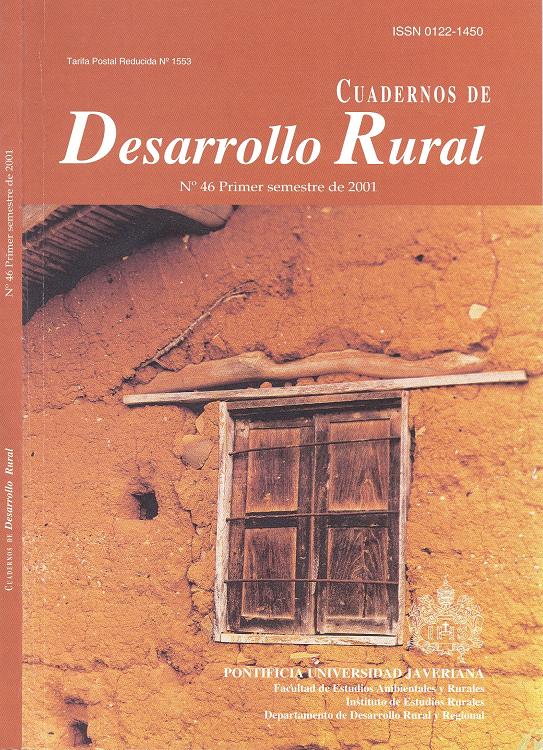Abstract
El artículo analiza los sistemas organizativo-Iaborales que caracterizan al sistema dehacienda cafetera colombiana en las primeras décadas del siglo veinte. Estudia lafunciónlaboral de los trabajadores agrícolas y resalta la gestión empresarial del hacendadopropietarioen el sistema de hacienda agroexportador. El análisis ofrece una perspectivahistórico-local, toma el ejemplo de la hacienda La Aurora (Líbano-Colombia), y abarca elperíodo 1907-1934.El enfoque toma en cuenta circunstancias y procesos históricos que afectan el sistema dehacienda: expansión y consolidación de la caficultura en la cordillera Central y ausenciageneralizada de brazos. El nivel de análisis se reduce para estudiar los efectos reales delas anteriores circunstancias en los cambios administrativo-laborales. Resalta la carenciade trabajadores, la inefectividad del sistema de enganche, y el nivel de gestión empresarialcomo factores que permiten la consolidación de relaciones de aparcería en el sistema dehacienda.El artículo hace uso del concepto de disposición para desarrollar un enfoque descriptivoanalítico.El concepto se usa para interpretar los cambios operacionales y lafuncionalidadde los agentes laborales. También para analizar el sentido de la disposición y uso internosobre ciertos objetos y mecanismos de producción. En este sentido los trabajadores y lossistemas de labor son vistos como objetos de disposición, supervisados y controlados segúnla disposición operacional y potencial del hacendado.Cuadernos de Desarrollo Ruralis registered under a Creative Commons Attribution 4.0 International Public License. Thus, this work may be reproduced, distributed, and publicly shared in digital format, as long as the names of the authors and Pontificia Universidad Javeriana are acknowledged. Others are allowed to quote, adapt, transform, auto-archive, republish, and create based on this material, for any purpose (even commercial ones), provided the authorship is duly acknowledged, a link to the original work is provided, and it is specified if changes have been made. Pontificia Universidad Javeriana does not hold the rights of published works and the authors are solely responsible for the contents of their works; they keep the moral, intellectual, privacy, and publicity rights.
Approving the intervention of the work (review, copy-editing, translation, layout) and the following outreach, are granted through an use license and not through an assignment of rights. This means the journal and Pontificia Universidad Javeriana cannot be held responsible for any ethical malpractice by the authors. As a consequence of the protection granted by the use license, the journal is not required to publish recantations or modify information already published, unless the errata stems from the editorial management process. Publishing contents in this journal does not generate royalties for contributors.


